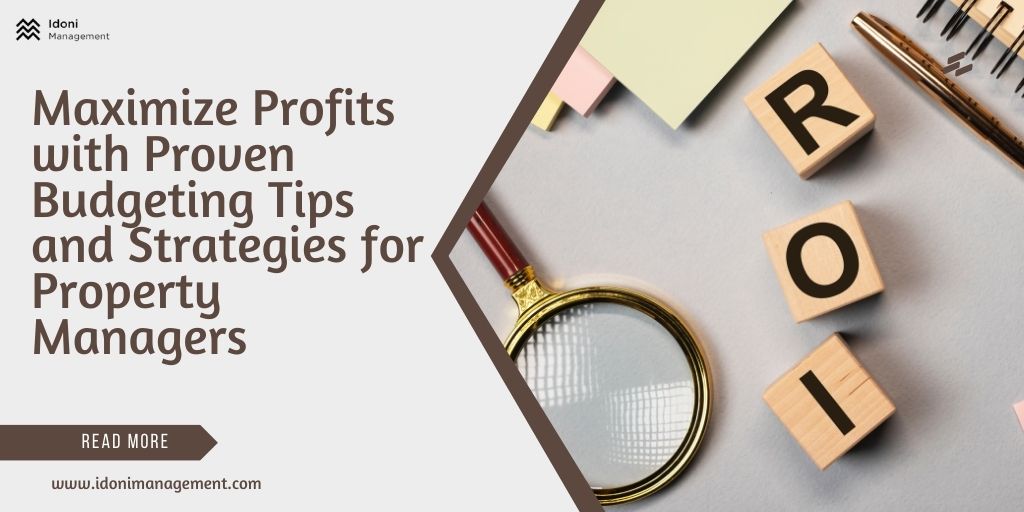In the competitive world of property management, the challenge of boosting profits while ensuring top-notch service might seem overwhelming. Yet, by embracing tried-and-true budgeting techniques, property managers can strike a perfect balance that fosters growth and maintains quality. This guide shares practical budgeting advice designed to elevate profitability and streamline operations for those at the helm of property management. Let’s dive into how understanding your finances, setting realistic goals, and making smart investments can transform your business landscape.
Additionally, for those seeking a reliable property management company in Connecticut, read our blog post “How to Find the Right Property Management Company in CT?” which provides essential tips.
Top 6 Budgeting Strategies for Managers to Enhance Profitability in Property Management
Understand Your Cash Flow
The cornerstone of any successful budgeting strategy is a deep understanding of your cash flow. Knowing exactly what is coming in and going out of your business is crucial. This includes all sources of income, such as rent payments, and all expenses, including maintenance, marketing, and administrative costs. A clear picture of your cash flow will help you identify areas where you can reduce costs or optimize spending to increase profitability.
Set Clear Financial Goals
Setting clear, achievable financial goals is essential for any property management business looking to improve its budgeting strategy. Whether it’s increasing your rental income by a certain percentage, reducing maintenance costs, or achieving a specific net profit margin, having specific targets in place will guide your financial decisions and help you measure your progress.
Prioritize Maintenance and Upgrades
Regular maintenance and timely upgrades are not just expenses; they are investments in the longevity and value of your properties. By allocating a budget for routine maintenance, you can avoid more significant expenses down the line. Additionally, strategic upgrades can increase property value and rental income, thereby enhancing your overall profitability. Check out our guide “Advanced Property Management Techniques for CT Landlords in 2024” to foster strong tenant relations and efficiency, ultimately maximizing your return on investment.
Essential Tips for Maintenance and Upgrades in Property Management
- Proactive Maintenance: Regular checks and timely repairs prevent minor issues from becoming costly problems, preserving the property’s value and appeal.
- Strategic Upgrades: Enhancing features to meet or exceed market standards, such as modernizing kitchens and installing energy-efficient appliances, boosts the property’s rental and resale value.
- Maximizing ROI: Invest in high-impact areas with the highest return on investment, like upgrading heating systems in colder regions to reduce energy costs.
- Tenant Satisfaction: Well-maintained properties improve tenant satisfaction and retention, reducing vacancy rates and turnover costs.
- Efficiency Gains: Implementing energy-efficient fixtures and systems reduces long-term utility costs and environmental impact.
Leverage Technology
Utilizing leveraging technology can lead to significant cost savings and efficiency improvements. Property management software can automate many aspects of your business, from tenant screening to rent collection and maintenance requests. This not only reduces administrative costs but also improves tenant satisfaction, which can lead to higher retention rates and lower vacancy rates.
Optimize Operational Efficiency

Optimizing operational efficiency is key to maximizing profits. This can be achieved by streamlining processes, outsourcing non-core activities, and continuously looking for ways to reduce costs without compromising on service quality. For example, bulk purchasing of maintenance supplies or negotiating better rates with contractors can lead to considerable savings.
Monitor and Adjust Regularly
Effective budgeting is not a set-it-and-forget-it task. Regular monitoring of your financial performance against your budget is critical. This will help you identify any discrepancies early and adjust your strategy accordingly. Whether it’s cutting unnecessary expenses, reallocating funds, or identifying new income opportunities, regular financial reviews are essential for staying on track.
Conclusion,
By implementing these proven budgeting tips and strategies, property managers can significantly improve their profitability and operational efficiency. Understanding your cash flow, setting clear financial goals, prioritizing maintenance, leveraging technology, optimizing operational efficiency, and regularly monitoring and adjusting your budget are all steps in the right direction. Remember, effective budgeting is about being proactive rather than reactive, allowing you to navigate the challenges of property management with confidence and ease.
Following these guidelines not only helps in adhering to Connecticut’s laws and policies but also ensures that your property management practices are sustainable, responsible, and profitable in the long term.
For more insights or personalized advice on your unique property management needs, don’t hesitate to contact us at Idoni Management. Our team is dedicated to supporting you in maximizing your property’s potential and achieving your financial goals.



